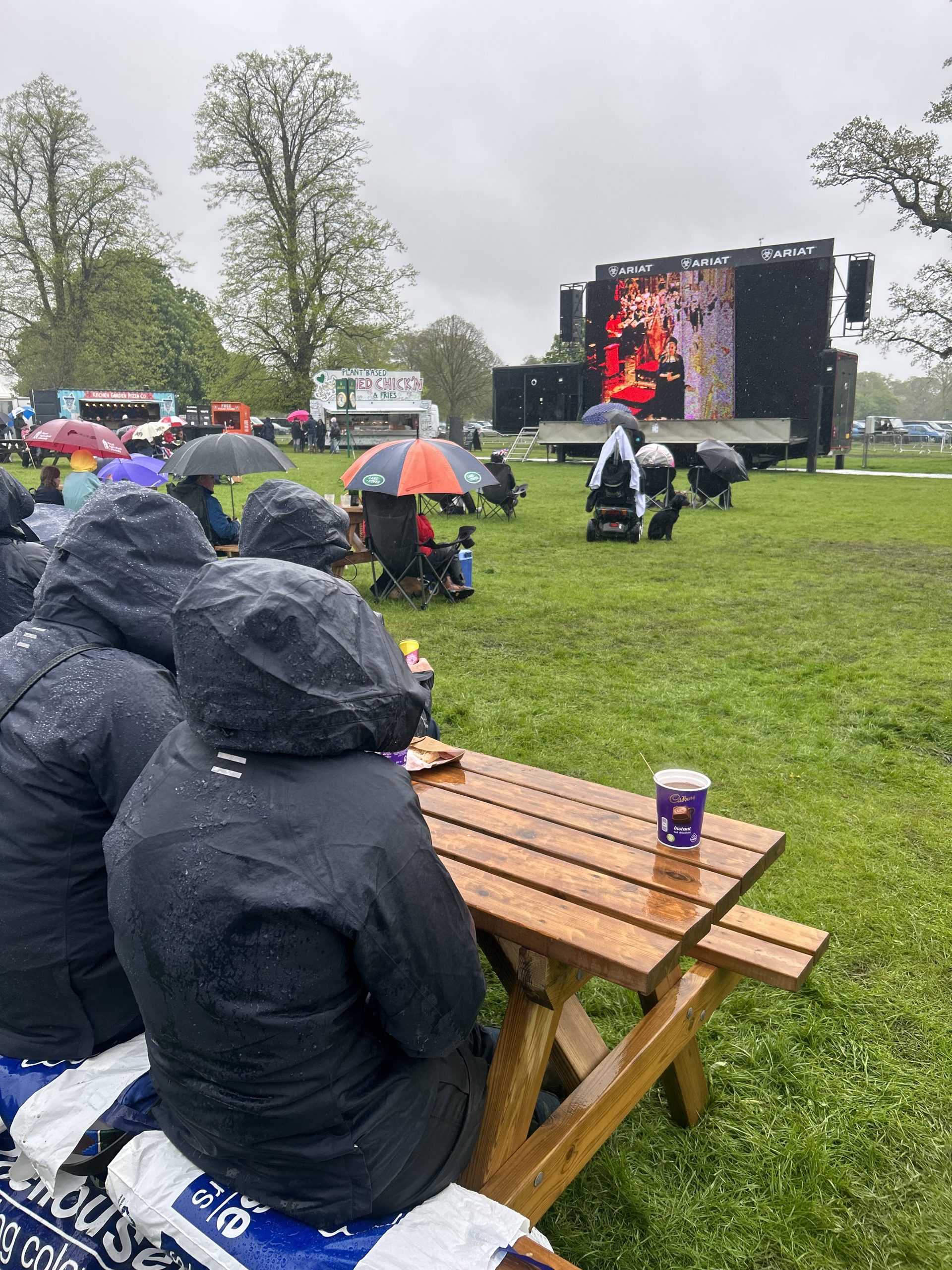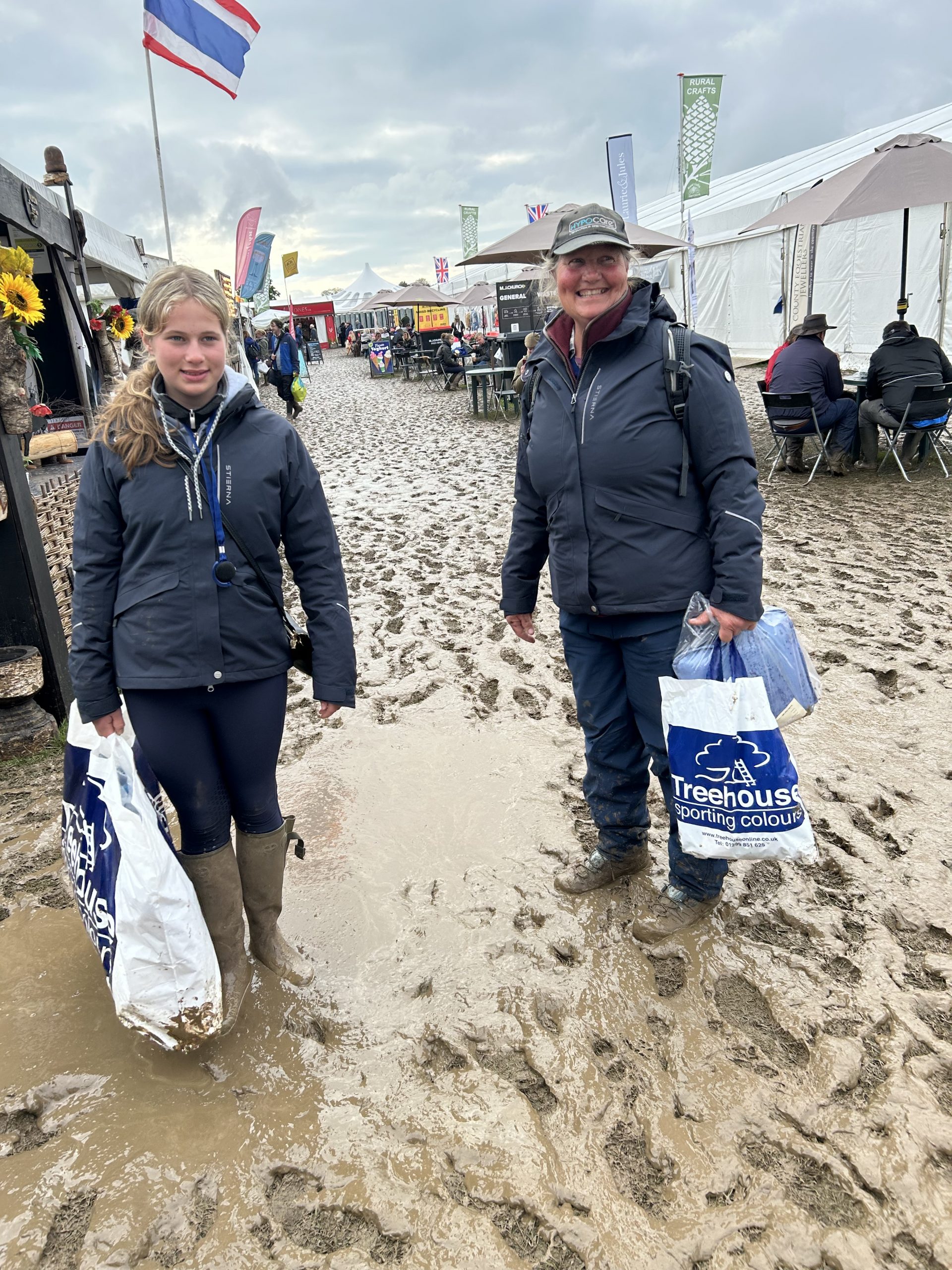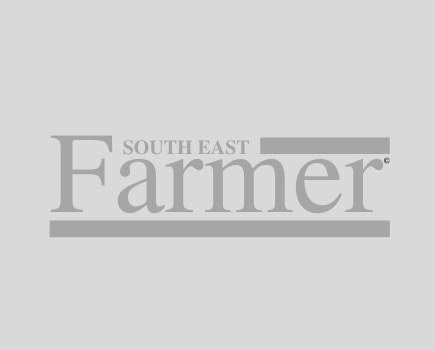If you talk to any farmer in the world, the first topic of conversation is likely to be the weather; I am baffled by how wrong the people that predict it can be. The weather dictates to us all 365 days a year. The weather enables businesses to make a profit or a loss, good silage or bad, dry straw or wet straw. the cost of feed is dictated to by the weather – in fact everything farming-related attributes to the weather.
Zara and I had a sneaky few days away at Badminton Horse Trials; it was amazing, but swimming in the mud was quite hard at times. Previously I could only imagine Glastonbury in the mud, but I can now relate the feeling to reality. Watching His Majesty The King’s Coronation on the big screen in the pouring rain while eating brunch is a memory that will last forever. We felt very patriotic.
As I sit down to write this, we are just wrapping up the final first cut silage. Fortunately, we have had a slight gap in the weather and the gods have been kind so far. So far so good. The yields have been good.
This year for the first time we have baled all our silage in square bales; time will tell if we made the right decision. It has certainly been a lot easier to move the bales. The arable side is now gearing up ready for harvest and the crops are looking good.
A new south-facing vineyard has been planted a few miles away, so fingers crossed that in a few years we will be able to sample the local vino. I would imagine that the average temperature this year will need to rise substantially. I wouldn’t class myself as a wine connoisseur, but I do know that grapes need warmth.
With so many events being cancelled all over the country, I believe that in the South East we have fared quite well so far. Speaking to a friend in the West Country, it would appear they still have lakes in a lot of fields and haven’t been able to get a tractor out on them as yet.
A recent survey showed that farmer confidence is at an all-time low since the start of the pandemic. The escalating costs associated with production are contributing to farmers being negatively affected by input prices in things like fertiliser, feed and energy. The phasing out of Basic Payments is affecting business confidence and thus has a negative impact on farmers.
Possible political change and extreme weather are also contributors. Low confidence indicates that farmers don’t have or foresee the means to invest in their businesses, which in turn will lead to a shortage of food on the table.
The cost-of-living crisis worldwide has also had a huge impact. In affluent times the general public will seek out the products that are farm-assured and reared to a very high standard; in times like these they will purchase the required product with little thought as to any standards required or indeed where the product has come from. In supermarkets the ‘value products’ are usually the first to disappear from the shelves.
As an industry that is suffering from low confidence, approximately 38% of farmers are using or producing renewable energy but confidence in the future is deterring farmers from making any more investment. Grants are occasionally available to assist with these capital projects but the paperwork trail and the ability to provide the capital to pay for them is somewhat inhibiting.
Until next time stay safe and keep well.









